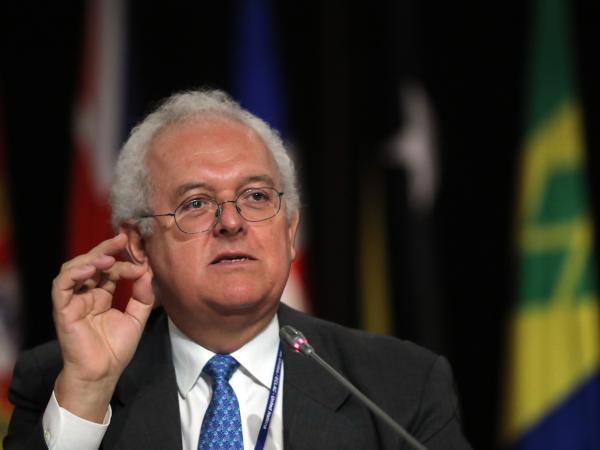On October 17, the Ministry of Finance announced that in the remainder of the year there will be no more issues of Public Debt Securities, TES, through auctions.
The portfolio argued that the $33.75 billion raised to date “are sufficient to meet cash needs”, and that this sum represents 90% of what was expected to be obtained in the local public debt market at the beginning of the year, which was $37.5 billion.
(Read: Government closes the issuance of public debt securities by 2022).
In addition, according to the Ministry, the good performance of tax revenues also represents a positive sign for the government’s accounts. “These two circumstances make it possible to finance the National Budget for the remainder of 2022 and wait until 2023 to make new TES issues.”, indicated the portfolio.
The market highlighted the measure, but also cuquestioned the country’s position in matters of public credit.
“This is good news, in reality what the Treasury is saying is that with what we have collected plus what is coming in we can cover until the end of the year, because when issuing a new bond it would have to be issued at higher rates, because all rates they go up, and then the debt with that bond would be higher”, assured the analyst Gregorio Gandini.
For the expert, on the other hand, this measure could also be “an attempt to calm the market”, and that is why the decision was made before the opening on Tuesday. “The timing is very precise after the historical price of the dollar on Friday, it was a way of sending a positive signal to a market that has been very nervous”, but for the expert, given the behavior of the dollar in the day did not have much effect.
“They are trying to show that there is fiscal solidity, at least until the end of the year, and taking care of the rates a little on those terms is another way of taking care of that solidity.Gandini assured.
(Furthermore: Government will reduce to 5 ministries and save $10,600 million).
On the other hand, Julio César Romero, chief economist of Corficolombiana, assured that the announcement not to issue more TES this year occurs in a quite agitated context in the international markets, and particularly the Colombian public debt market has been exposed to very strong pressure in recent days as the interest rates with which the government was having to borrow were above what was budgeted.
Romero stressed that the government’s other source of financing, taxes, has been behaving well, and for this reason, stopping issuing TES “is a measure consistent with the cost of financing the level of debt, and that is linked to the fact that the economy is coming growing very well.” Likewise, He highlighted that the TES placement schedule was “well advanced”.
Like Gandini, Romero acknowledged that “you have to read between the lines,” if you take into account the behavior of the market on Friday. “The markets may be sending a message to the government, both the exchange rate and the public debt, what we saw last week does seem to be a signal for the government to take action on the matter, and one of them is to stop issuing debt.”
(See: Colombia ratified Escazú: what is coming in terms of investment).
Laura Lucia Becerra Elejalde

















